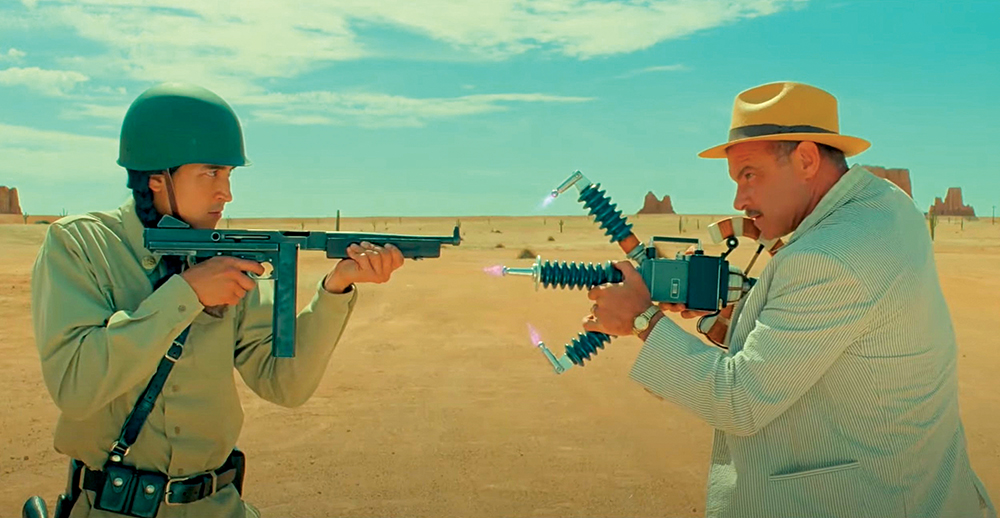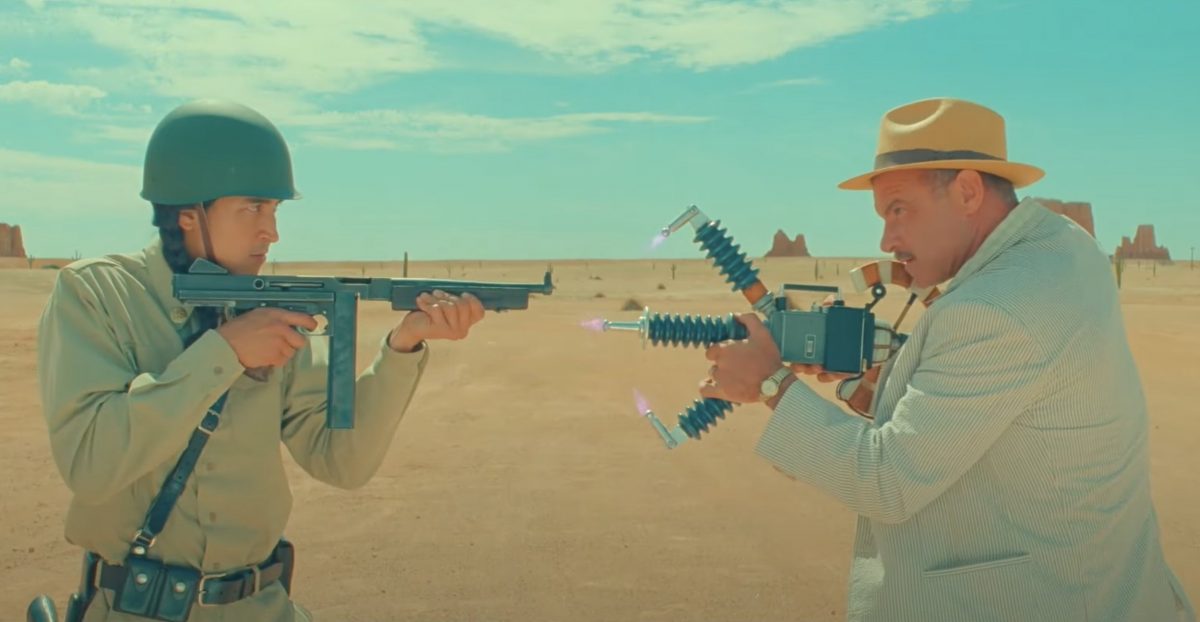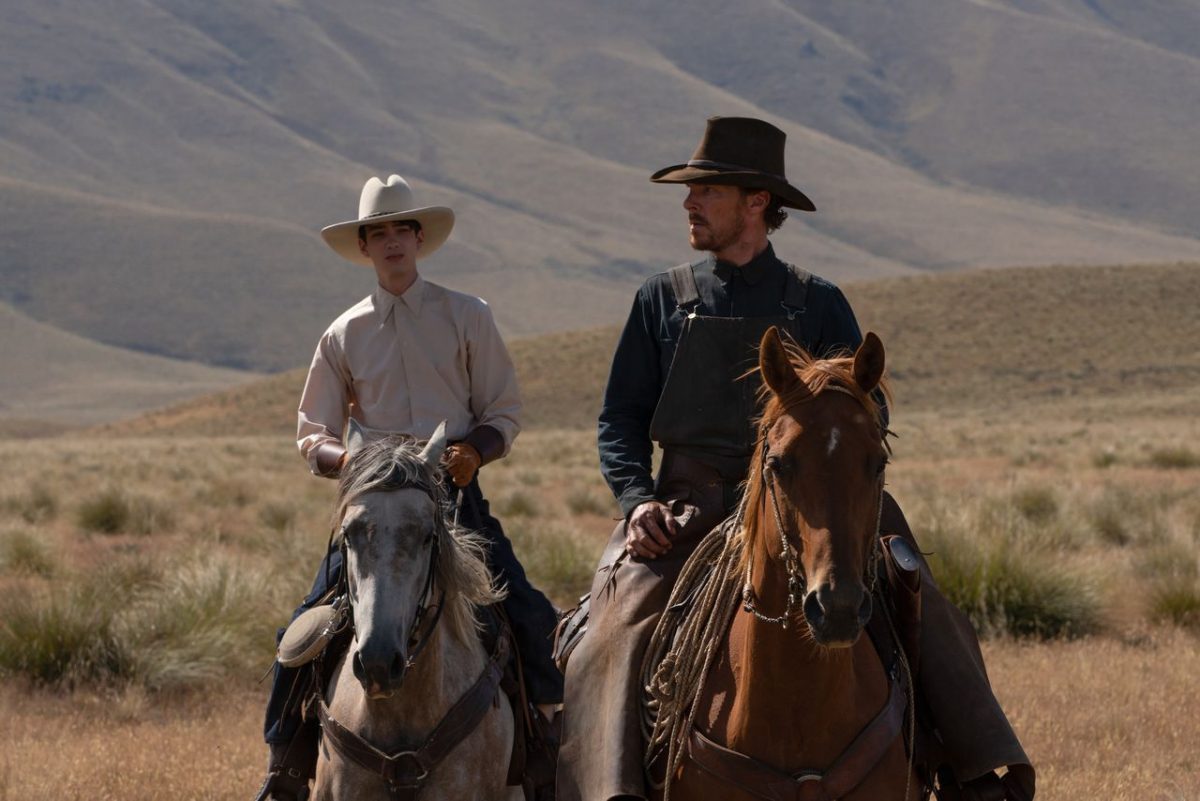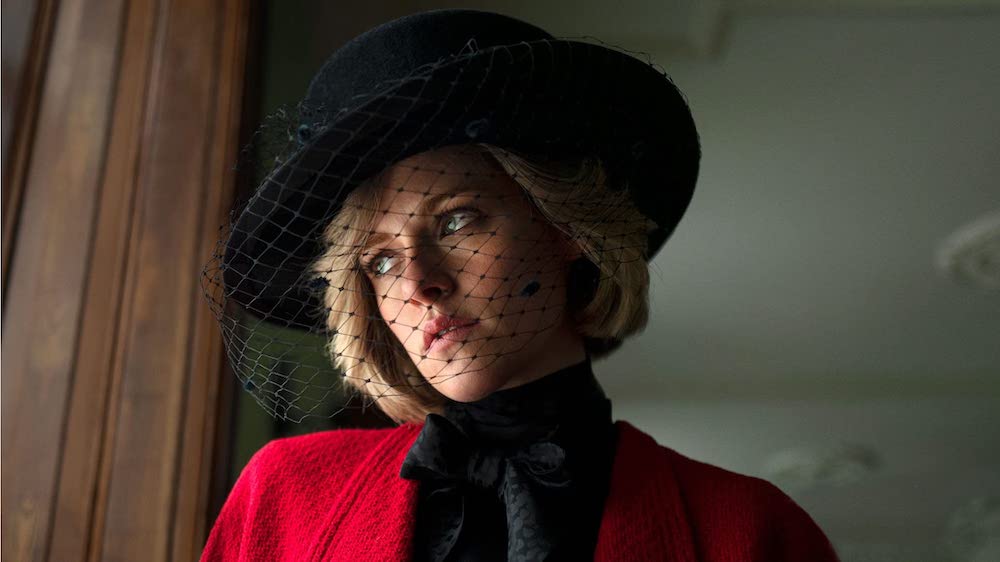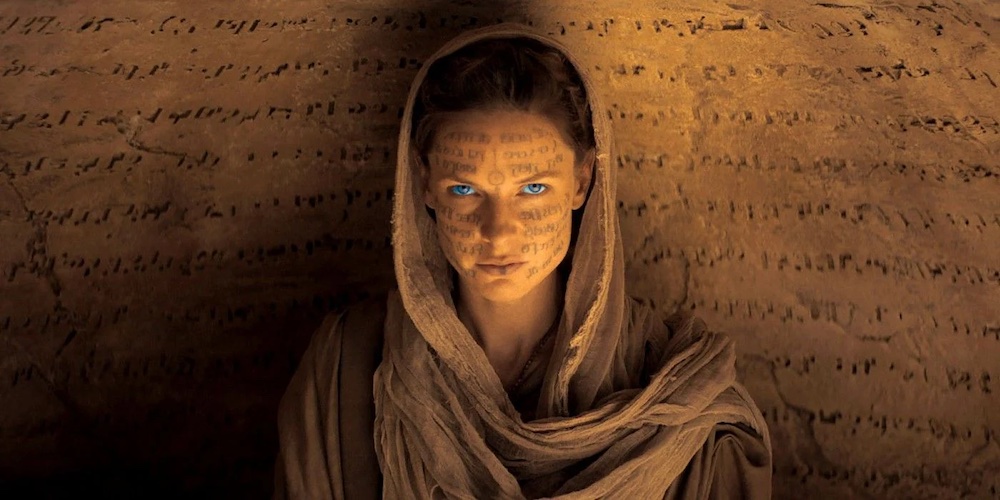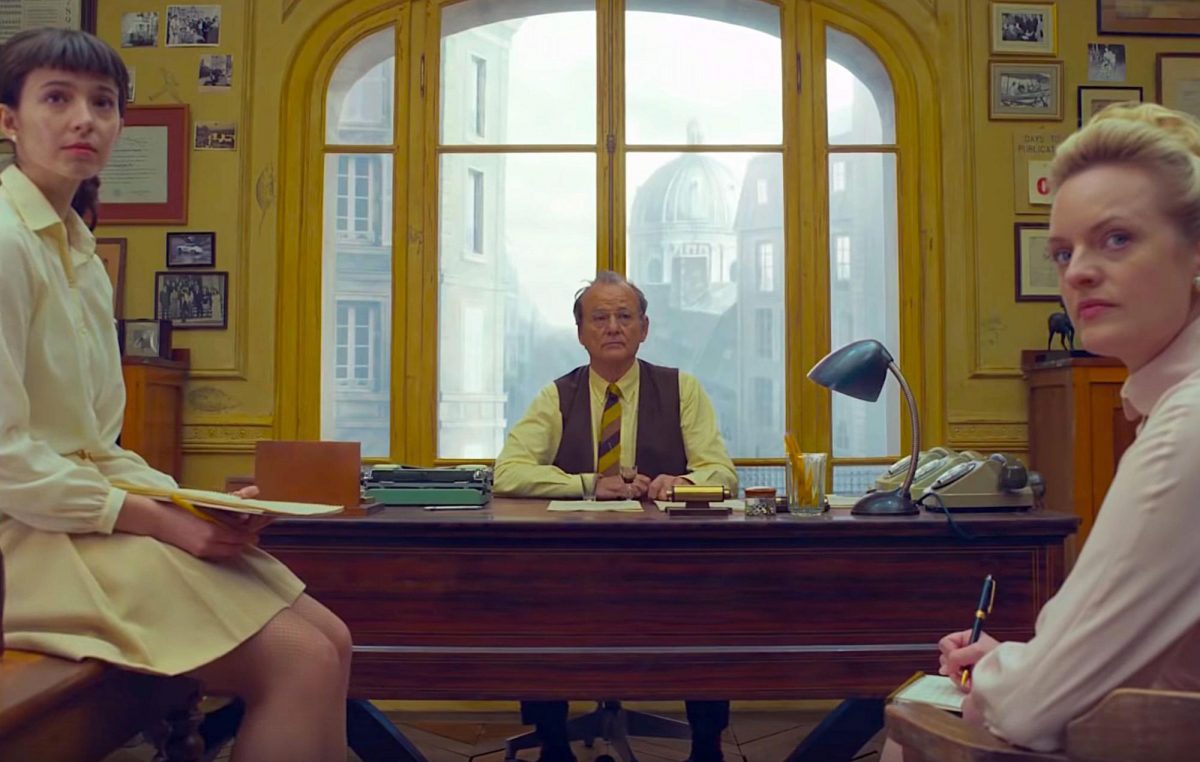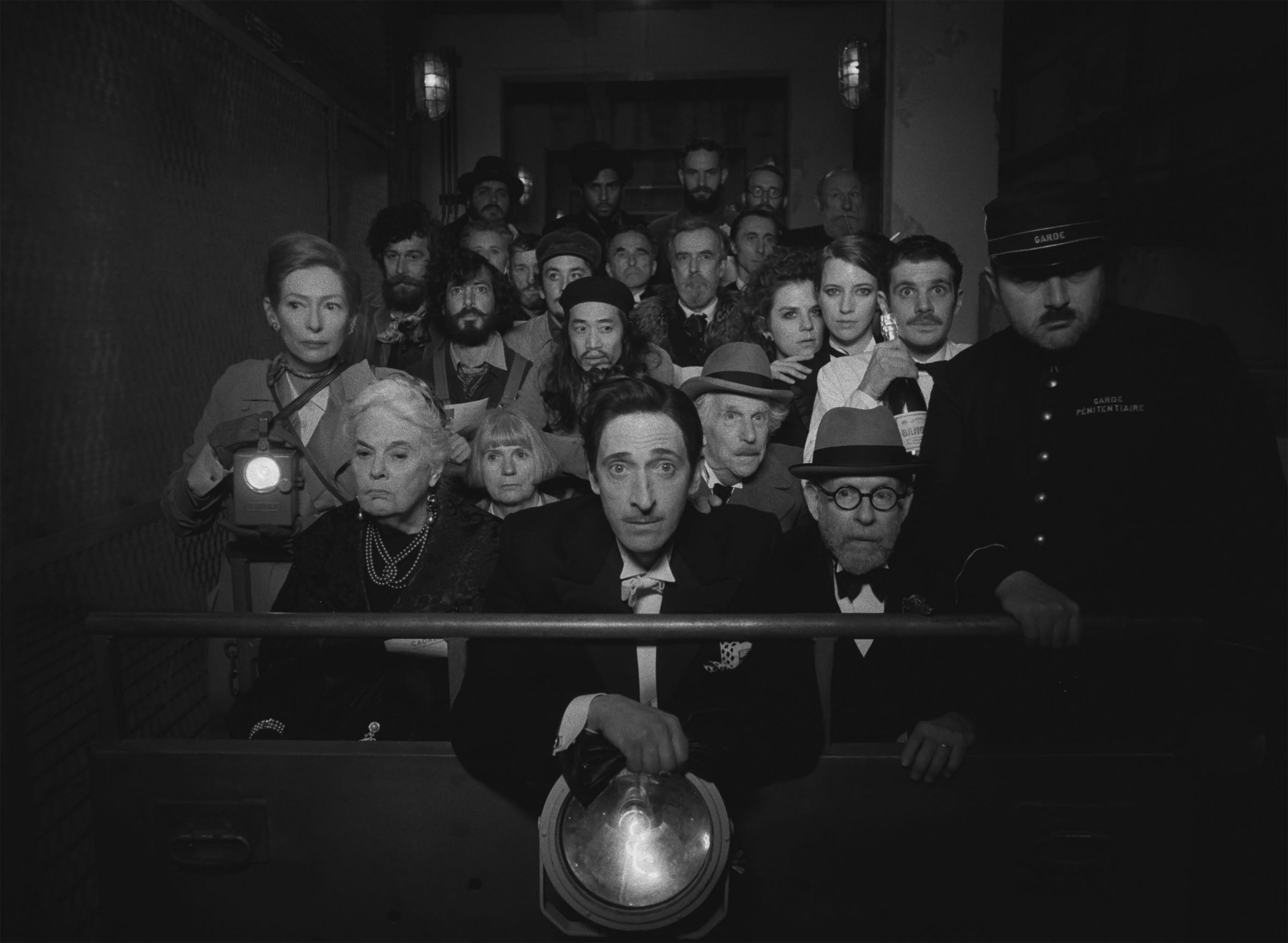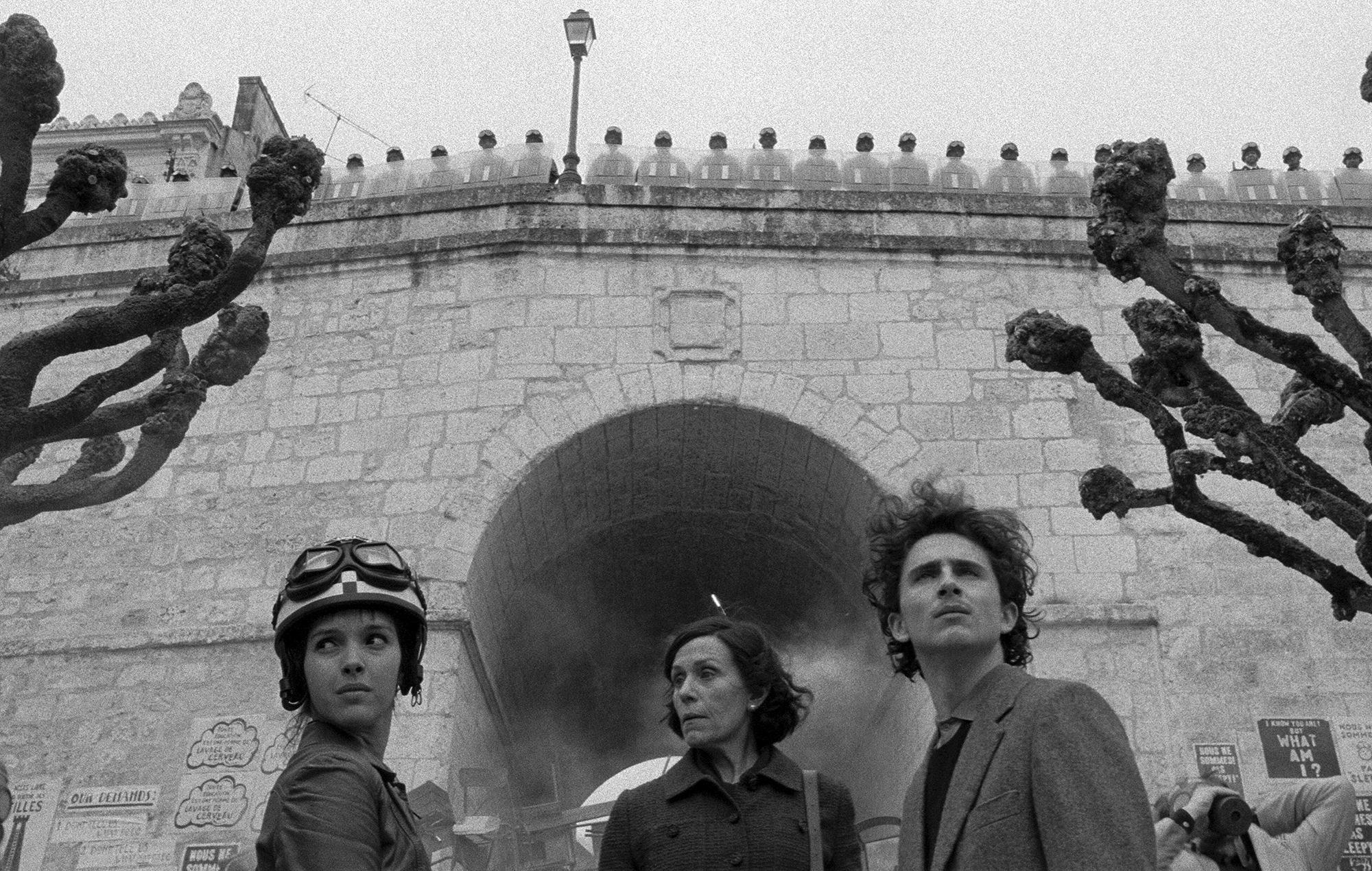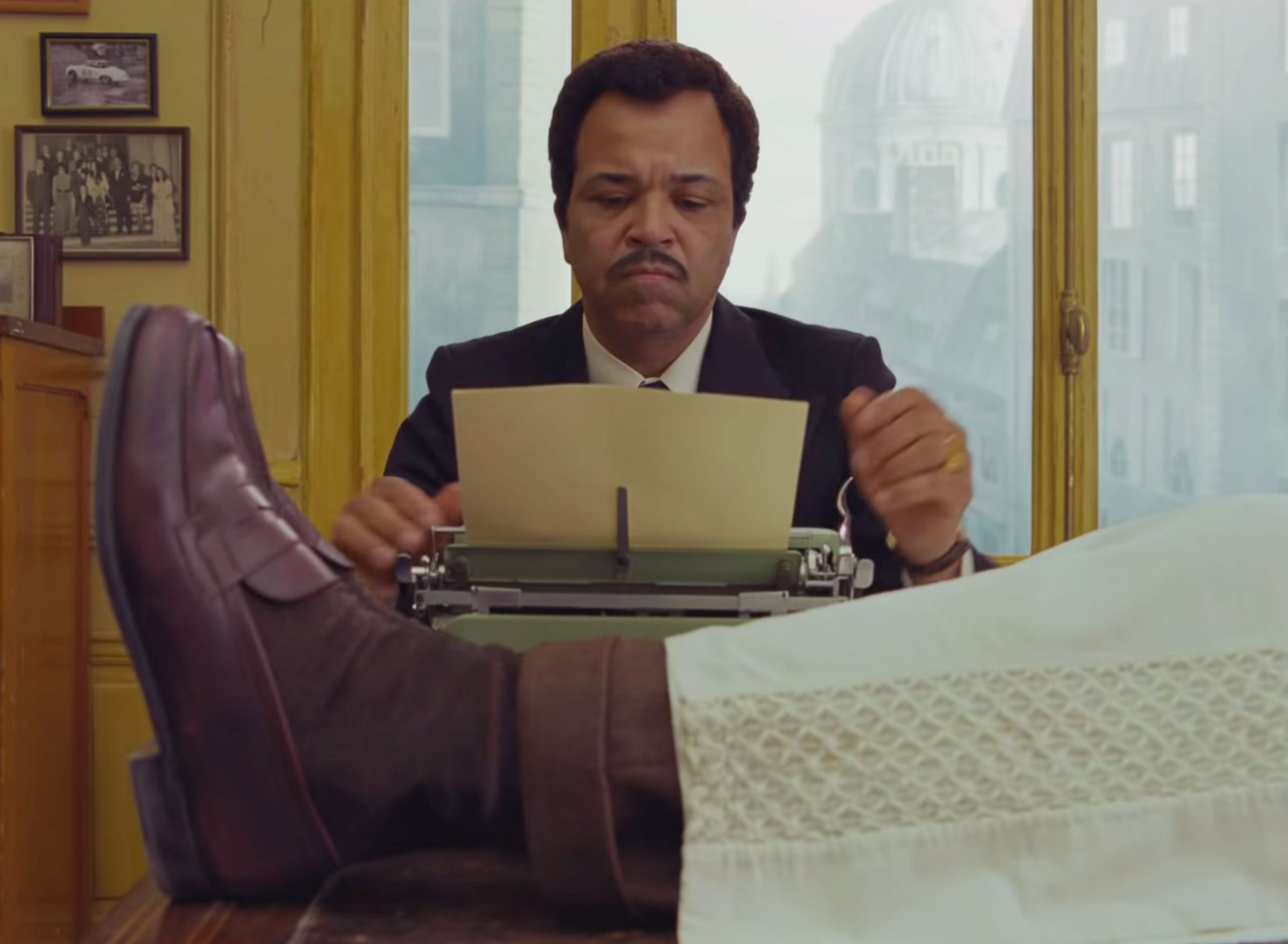This morning, as I was scrolling Twitter over coffee, I saw a user complaining about the avalanche of Wes Anderson parody TikToks. They posted the “Reading of the Will” scene from The Grand Budapest Hotel to prove that none of Anderson’s legion of sarcastic imitators could touch the genuine hilarity of Ralph Fiennes deadpanning, “I sleep with all of my close friends,” or the flurry of punches that ends with an iris-in on a snarling Willem Dafoe. I was low-key shocked at how many Twitter users responded with variations on “OMG, is this from a real movie?”
Anderson is now in that weird space of being famous for being famous. His distinctive style, which first came together in The Life Aquatic with Steve Zissou, has been around long enough to be ripe for parody. Apparently, some clout chasers didn’t know what, exactly, they were laughing at. It was encouraging to see a couple of those responders chime in later to say they had sought out The Grand Budapest Hotel and found it hilarious and touching. You can imitate the surface with flat performance and fussed-over mise-en-scène, but the qualities that make Anderson one of our greatest living filmmakers are more elusive. His secret sauce remains secret — perhaps even from the artist himself.
Asteroid City is the follow-up to The French Dispatch, which is not just a career peak for Anderson, but in the running for the greatest film of the 2020s. (It’s early, I know.) So it carries a very heavy burden of expectations. Normally, this is the point of the review where I say something like, “It’s the story of blah blah, who must yadda yadda to avoid an oopsie.” But I’m not sure whose story Asteroid City is. Is it Augie Steenbeck (Jason Schwartzman), the war photographer on a road trip to the 1955 Junior Stargazer Convention who must decide when to tell his kids their mother died three weeks ago? Is it Conrad Earp (Edward Norton), the closeted gay playwright whose latest play, Asteroid City, is an examination of grief and hope in a Nevada desert scarred by craters from atomic bomb tests? Or is it Schubert Green (Adrien Brody), the director so obsessed with his production of Asteroid City that he sleeps in the theater? Or maybe it’s all of their stories, as told by Bryan Cranston, the host of a Playhouse 90-style anthology TV series that is staging a broadcast version of the play.
The basic plot of Asteroid City (the play) is “a stranger comes to town.” The stranger is an alien (seen twice as stop motion animation, and once as Jeff Goldblum’s cameo), and perhaps the story is really about the sprawling cast’s reaction to its arrival. General Grif Gibson (Jeffrey Wright) reacts by imposing a quarantine on the Junior Stargazer Convention. Dr. Hickenlooper (Tilda Swinton) just wants to study the alien. Augie, at his lowest point in life, discovers romance in the person of Midge Campbell (Scarlett Johansson), a famous actress who likes to practice her nude scenes in front of her cabin window.
As you can see, there’s a lot going on. Each of the pieces of this sprawling puzzle works in their own way. Wright is Anderson’s new favorite monologist, and he delivers brilliantly. Schwartzman, Anderson’s longtime foil, pulls off a bewilderingly complex triple role as Augie, the actor who plays him, and Conrad Earp’s memory of his lost lover. Johansson, who has always had deeper chops than most of her roles require, lays on the affected mid-Atlantic accent of a spoiled, bored movie star reawakening her passions. Anderson goes from wide-screen to 4:3, and from a desaturated postcard color palette to stark black and white, fluidly and naturally. Practically every shot is perfectly composed joy unto itself.
The problem is, the parts don’t play well with one another. Cranston’s TV show, ostensibly the “top” layer of reality, adds too much metatextual complexity. The huge cast is fun, but it also means we don’t get to spend enough time with some of them.
Anderson superfans like me will have a grand time with Asteroid City, and hopefully, it will open up upon rewatch. But more casual viewers might end up lost in the director’s swirling cosmos.
Asteroid City
Now playing
Multiple locations
